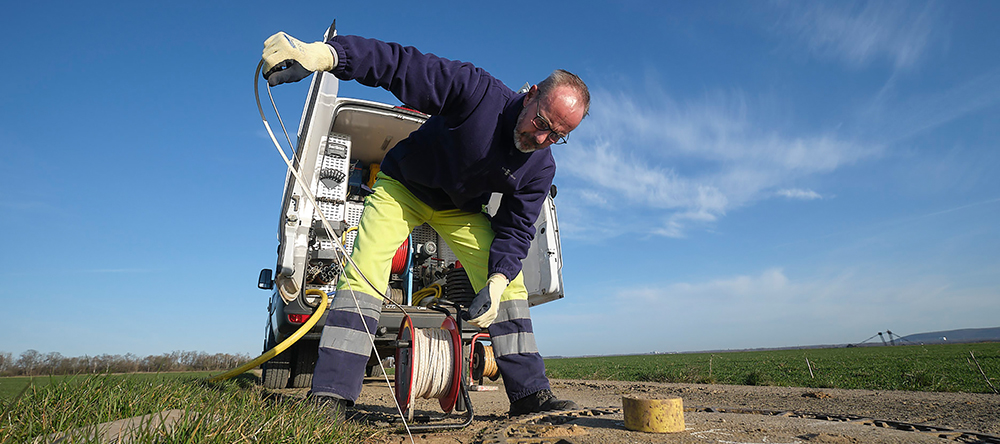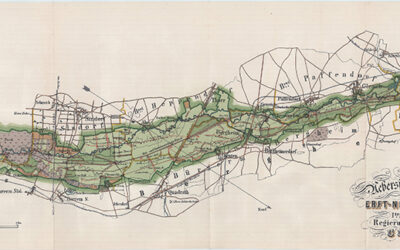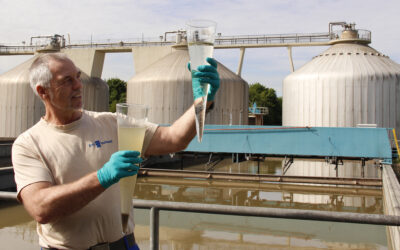The Erftverband monitors the groundwater conditions in the Lower Rhine Basin, with particular focus on the influence of the Rhineland brown coal mines.
The Lower Rhine Bassin, a geological trough, was formed in the Tertiary era (65 to 2.6 million years ago) and contains, within its heavy deposits of unconsolidated rock, significant sources of groundwater which are used intensively.
Key responsibilities of the Erftverband are
• securing water supply of 2.7 million people
• protection of wetlands
• management of groundwater
In order to fulfill its responsibilities, the Erftverband operates an extensive network of groundwater observation wells where data on groundwater level and groundwater quality are collected. The Erftverband also advises its members regards various hydro-geological and water management issues.
The Erftverband is a non-profit organization under public law, with a focus on a healthy environment and the common good. The organization is financed through the fees paid by its approximately 250 members. The Erftverband and its more than 500 employees reconcile the different water-related interests of the regional players in a responsible and sustainable manner and with a sense of Proportion.
The core region in which the Erftverband operates is the 1,900 km² catchment area of the river Erft. The catchment contains numerous tributaries and bodies of water along with the 104 km long river. Here the organization purifies the domestic sewage produced by approximately 750,000 residents as well as the sewage generated by local trade and industry, which is equivalent to a waste load produced by another 450,000 people. Moreover, the Erftverband looks after a fragile natural region and protects the residential areas from flooding.
However, the reach of the organization goes far beyond the Erft watershed. The entire area of activity comprises over 4,220 km², covering the region affected by the brown coal mines of the Rhineland (Rheinischer Braunkohlenbergbau). The Erftverband monitors the complex relationships involving water supply and distribution, oversees groundwater resources, ensures the water supply and protects the numerous wetlands.



